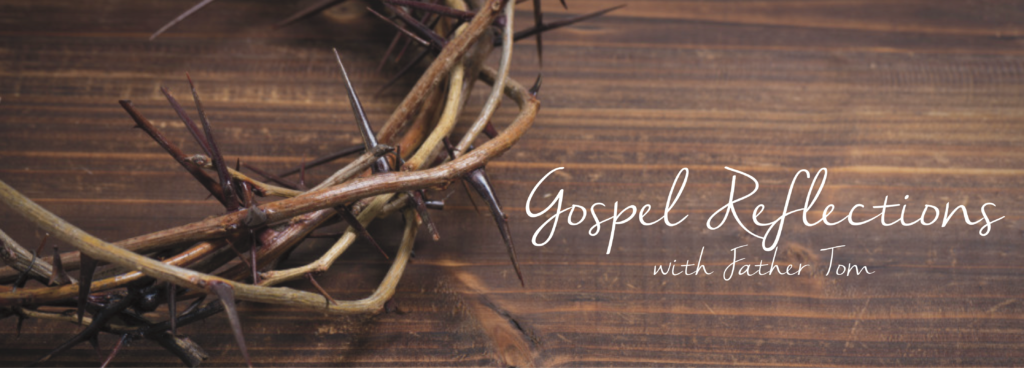
We have just begun Lent. And when we think of Lent we think of penance. Most people undertake some penance for Lent. This is a good and worthwhile practice. However, penance is not an end in itself.
Once upon a time a very earnest young man visited a famous rabbi.
He told the rabbi that he wanted to become a rabbi and asked for his advice. It was winter time. The rabbi stood at the window looking out into the yard while the rabbinical candidate gave him a glowing account of his piety and learning.
The young man said, “You see, Rabbi, I always dress in spotless white like the sages of old. I never drink any alcoholic beverages; only water ever passes my lips. I perform numerous penances. For instance, I always carry sharp-edged nails inside my shoes to mortify me. Even in the coldest weather, I lie naked in the snow to punish my flesh. And to complete my penance, I take a dozen lashes every day on my bare back.”
As the young man spoke, a stable boy led a white horse into the yard and took him to the water trough. The horse drank his fill of water, and having done so, rolled in the snow, as horses sometimes do.
“Just look!” cried the rabbi. “That animal, too, is dressed in white. It also drinks nothing but water, has nails in its shoes and rolls naked in the snow. Also, rest assured, it gets its daily ration of lashes on the rump from its master. Now, I ask you, is it a saint, or is it a horse?”
The point the rabbi was making was that penance is not an end in itself. What is the purpose of penance? It is not meant to undo the past but the past is done. Nor is it meant to persuade God to erase our sins and forgo the punishment we deserve for them.
The first thing we are doing when we undertake penance is acknowledging that we are sinners. The second thing we are doing is expressing the desire to change our lives. The whole object of penance is to reform a sinful way of life.
Penance is an exercise in saying “no” to ourselves. It is intended to show that we are capable of better things, and that we sincerely want those things. We want to reform our lives, but we know we cannot do so without the grace of God. Its purpose is to acquaint us with our better side “I’m not a bad person; I can do better.” It means taking a step in the right direction.
When people prune a fruit tree, they are not doing it to punish the tree, but to make it more fruitful. So our penances have as their goal to lead us to a new and better life.
It is a lot easier to undertake penances, even severe ones, than to try to change sinful attitudes or habits. For our penance to bear fruit it must result in a sincere effort to change our lives.
Lent provides us with a window of opportunity to look at ourselves to see how we can become better followers of Christ. The example of the sinless Jesus battling with Satan acts as a spur to us. The victorious One will help us to be victorious in our struggles with sin and evil.
